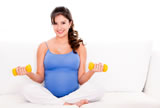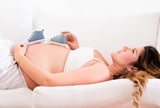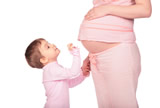Pregnancy week 1
Pregnancy week 1
The running “theory” is that when a woman is one week pregnant, she is not really pregnant yet. This is due to the fact that the first week signifies when the actual conception takes place. The body changes she will be experiencing are not going to be noticeable during the first week. This is why the first week isn't always recognized until after the fact. That being said it is always recommended that when trying to conceive, measures are taken to help the pregnancy along whether it's known or not. This is one of those cases where assuming is the right thing to do.

Now while most women do not know they are actually pregnant during this time, some women do. Some women are very much in tune with their bodies and any sudden changes will let them know that, yes, they are more than likely pregnant. One way to tell is the rise in body temperature. This is only going to be a half a degree or so, so this change is usually looked at in tandem with others in order to get the whole picture. Low blood pressure is as good an indicator as any that she is pregnant so be on the look-out for the telltale signs of dizziness, fatigue and being lightheaded.
Since pregnancy is very obviously going to change a woman's physicality, it should be a matter of course to take steps in staying healthy. If not for the woman's sake then for the baby's. As with anything else, moderation should be the standard to go by whenever taking supplements to help the body stay healthy. Pre-natal vitamins are as a good place to start here and the doctor who is going to be monitoring the pregnancy through its term will be the best choice in recommending what is best.
Along with the physical changes that she may need help with, there are going to be emotional ones, as well. The mood swings, the fatigue, the heightened sensations and anything else that is out of the norm should be looked at and determined if vitamins and/or supplements are needed. Having a physician that knows her past is very important here because knowing the history of a patient can help a great deal in keeping her and her baby healthy.
Now along with supplementing the physical and emotional changes, the diet should be looked at as well. The old adage about eating for two obviously applies so the expectant mother needs to keep in mind that along with nourishing herself, she also needs to be nourishing the baby. The question some women have is whether a diet suitable for an adult is also suitable for the baby to be. The right diet most certainly is and most experts agree that a diet high in folic acid is the best one to start off with.
Folic acid, whether taken as a supplement or through foods high in grains, helps a great deal in warding off possible birth defects. If using cheese or other dairy products it is important to remember to make sure the product clearly states that it's pasteurized. Pasteurizing food is essentially killing bacteria through heat. Feta cheese for example is not pasteurized, and therefore should be avoided.
As stated before, the first week of pregnancy usually goes unnoticed during that time frame so if a woman is trying to get pregnant, for the sake of her diet, she should assume she will and start focusing more on folic acid as a daily diet intake. While it's true that supplements such as pre-natal vitamins provide enough folic acid, there is no such thing as starting too early with this. Women should keep in mind that what is healthy for them is also healthy for their baby.
Getting back now to foods that have little or no bacteria, it is important to note that if something can typically be eaten raw, it is not advisable to so. Eggs for example should always be cooked. They are high in protein, even more so when digested raw, but for pregnant women it is more important that any bacteria that may be present in this food, be killed off with the heat from cooking or boiling eggs. With vegetables, some people use hot water to rinse them off while others use white vinegar. Both methods are safe, the latter of the two especially, and advisable because of the chemicals sprayed on them while in the field. White vinegar is very good at getting those chemicals off of fruits and vegetables.
Along with folic acid, iron is also a much needed commodity. The lack of iron in a pregnant woman’s diet can lead to low birth weight and premature deliveries. White meats such as fish are a good source for this as are leafy vegetables. As with anything else, moderation up to the recommended daily intake should be practiced. The diet should be well rounded to include all of the foods in the good old fashioned food pyramid. The doctor in charge of overseeing the pregnancy is in a good position to know if a woman’s body needs more than the recommended daily amount of any given type of food, so regular consultations to include this advice is highly recommended.
Even though this should go without saying, it is worth reminding that alcohol and smoking during pregnancy is a very bad idea. What goes into a woman’s body also goes into the baby. Pregnancy is a delicate condition where many things can go wrong, so it is best to reduce those chances by not putting harmful chemicals and/or substances into the body. Over the counter medications such as flu relief are typically considered safe when taken in accordance to the package directions, but again, a woman should consult her physician just to make sure.
Focusing on her internal health is vitally important, but during the first week of pregnancy a woman is also going to be concerned with how the full term of the pregnancy is going to affect the way she looks. One way to help in this regard is to start using stretch mark creams as soon as possible. They are of course formulated to not be harmful to a woman’s body and they contain chemicals to help reduce the amount of stretch marks that women get.
Creams high in cocoa or Shea butter typically work the best, but since every woman’s body is a little different, and especially if this is the first pregnancy for a woman, a little trial and error with different creams wouldn't necessarily be a bad thing. Vitamin C is also good for this. What is recommended here is 1,500 milligrams a day, broken up in 500 milligram increments 3 times a day, along with glycolic acid. This increases the collagen production in a woman’s body which helps reduce the occurrence of stretch marks.
What typically will not work are products that claim to “repair” stretch marks. The key to all this is moisturizing, and keeping the skin moist before the marks appear is the best way to keep them from appearing. To try and get rid of the marks after they appear is usually an exercise in futility. Being proactive with this is also beneficial from the standpoint that it will bring peace of mind to a woman knowing that she is doing all she can to keep her appearance up during pregnancy.
Peace of mind like this is also very important in staying emotionally healthy. Studies have proven that not only does diet affect an unborn child, but so do the emotions of a pregnant woman. While mood swings certainly cannot be avoided, they are human nature; steps can be taken to curb them. If applying stretch mark creams help in this regard then, yes, it is highly recommended. Every woman wants to look the best they can whether pregnant or not, and looking good equates to feeling good, which in turn is good for the unborn child.
Pregnancy can be a very trying time for some women so it is important to keep stress at a minimum during this time. As it is important to be proactive with both the internal and external health of a woman, it is also important to be proactive with her emotional wellbeing as well. While trying to conceive it might be best to get into the habit of paring down the daily routine as much as possible. This is good to do so when a woman actually does conceive, she doesn't have to go through a radical lifestyle change to accommodate having as much of a stress free pregnancy as possible.
The first step in all of this is getting plenty of rest. Even if this means starting with an extra 15 minutes or so of “down time”, it's a start. Most women these days continue working up to the start of their third trimester because of financial obligations, so if there is a significant other in their life, they may want to step up and take on more responsibility. Not only are the household finances going to change after the baby arrives, a woman cannot be expected to continue working too long into her pregnancy. Not only is it not very good from a physical standpoint, it also increases her stress levels.
Relaxation is something that is going to vary from woman to woman. Whether it's just laying down where there's peace and quiet or soaking in a hot bath, whatever works best for each individual is what is recommended. Dissolving one cup of Epsom salts in bath water is not only emotionally relaxing but it's very good in releasing tension in aching or sore muscles. The further along in pregnancy a woman gets, the more beneficial Epsom baths are.
Some women like soothing music, such as certain classical music, while taking a break from things. There are studies out there that show the benefits of relaxing to classical music, but there is yet no substantial proof. Again, things like this should be taken on a case by case basis as every woman is a bit different in this regard. The important thing is that getting and maintaining a relaxed and stress free atmosphere is beneficial to both the mother and expectant child.
If all this seems like a lot of information to take in, that's because there is a lot involved in being pregnant. It is important though to step back from all the information from time to time and not worry about things too much. What helps, again, is being proactive. When trying to conceive it is best to start gathering as much information on pregnancy as possible. There is more information both online and off than a person can shake a rattle at, so it is best to take things slowly and step by step.
While gathering information on the first week of pregnancy is the obvious route to take, it's also kind of an overview of the proceeding 35 weeks. If getting pregnant for the first time, this all can seem very overwhelming to the expectant mother. This is why it's important to take all of the information bit by bit. She's not going to put all 35 weeks of her pregnancy into one, so she shouldn't expect herself to digest all the information needed at one time either.
In closing, having a baby is the most important thing a woman can do so, while taking it seriously is important for obvious reasons, it's also important not to get too overwhelmed by it all. It is, after all, a natural process, a joyous occasion when it's all said and done, very fulfilling. The expectant mother should be kept as upbeat and relaxed as possible and not made to be overly concerned about it all to the point where stress comes in. Week 1 is only the beginning, so keep in mind the pace. As they say, slow and steady wins the race.
Video Source: Youtube
Copyright © 2012 Babiesbase.and respective owners. All rights reserved.
Other product and company names shown may be trademarks of their respective owners.





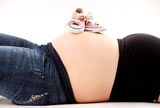
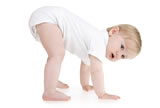


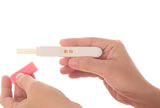

 Sign up for our week by week
Sign up for our week by week